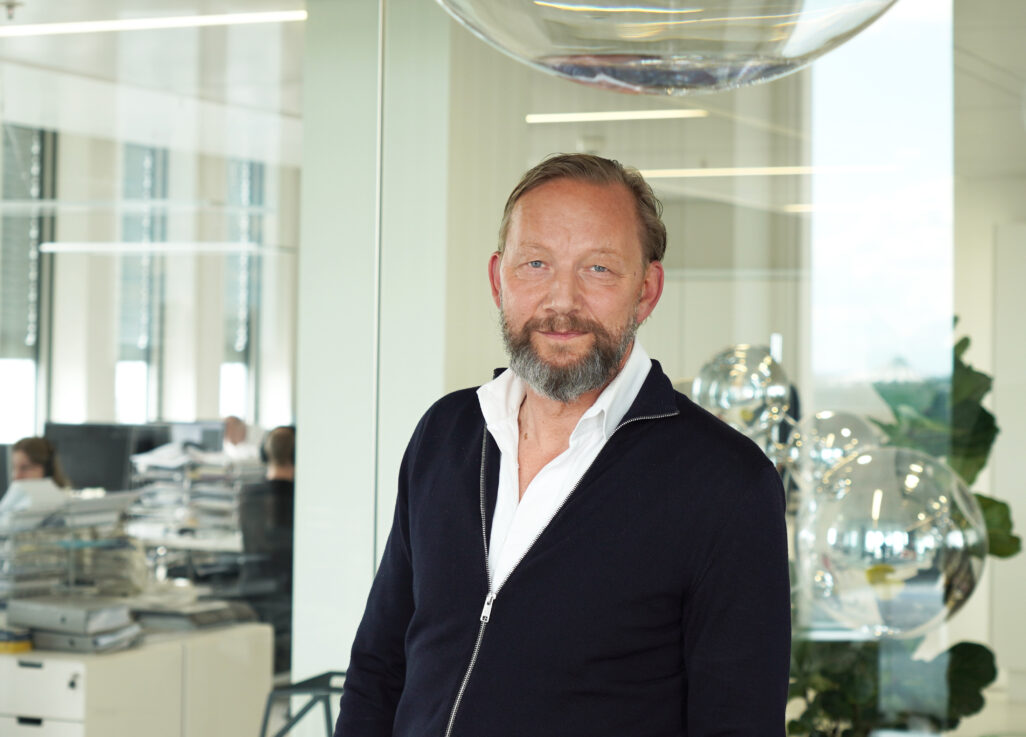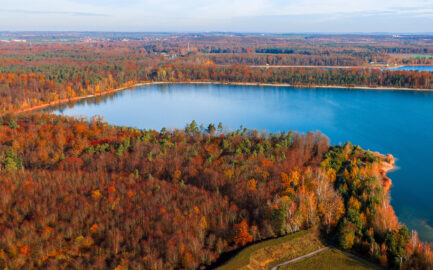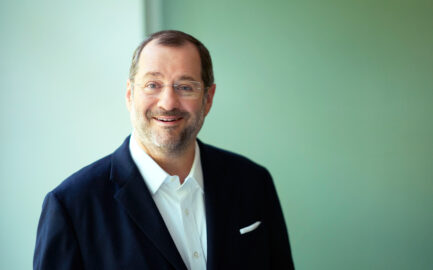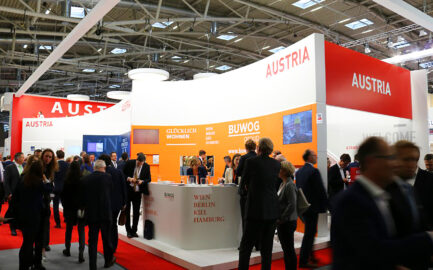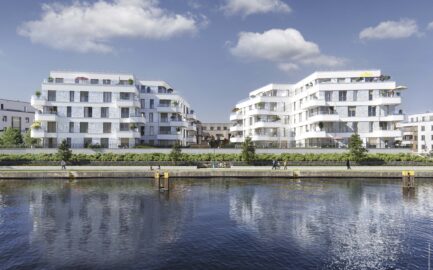BUWOG podcast: In this episode we talk to architect Eike Becker about the need for urban densification. How can sustainable urban density be achieved in harmony with a better quality of life? And what role do vertical and car-free neighbourhoods play in this?
Eike Becker has been director of the renowned firm Eike Becker_Architekten since 1999 and is active as a member of the advisory board of the Federal Foundation of Baukultur and as a board member of the Friends’ Association of the Federal Foundation of Baukultur. We meet him for our interview in Berlin’s Europacity in the 70-metre-high “Total Tower”, the German headquarters of the French energy company TotalEnergies, which also houses the architect’s office. The view from up here sweeps over a city that is built as far as the horizon. Can a big city like Berlin become any denser?
“Our mobility is a disaster”
Of course. “Berlin still has enormous potential, even on built-up areas,” says Eike Becker. In his view, building in Germany is too low, too narrow, not dense enough, and altogether too spacious. Urban densification is essential, not only for economic reasons, but also from an environmental perspective. If you look at the concept of spatial proximity with respect to housing, life and work, unnecessary traffic can be reduced by shortening distances.
“When we talk about density,
we’re not talking about the density of Asian cities.”
In some cases wide lanes reserved for the individual traffic of today, there are spaces that could be put to much better use: “Our mobility is a disaster and offers enormous potential for improving the quality of urban life,” Becker says. With better open areas and an improved quality of amenities, more green spaces and zones for social interaction, the adjacent areas could become denser and taller.
Densification may sound threatening. Eike Becker is pragmatic about it: “When we talk about density, we’re not talking about the density of Asian cities. It’s mainly about making cities more compact. It’s about a good life for everyone, with less traffic, more communal areas, good neighbourhoods with options for children, seniors and more interaction. To sum up: cities and neighbourhoods not only have to become denser, they have to be improved.
An in-depth conversation about urban densification, why the city has to grow upwards – and how moving closer together can succeed in the long term. Listen now!

